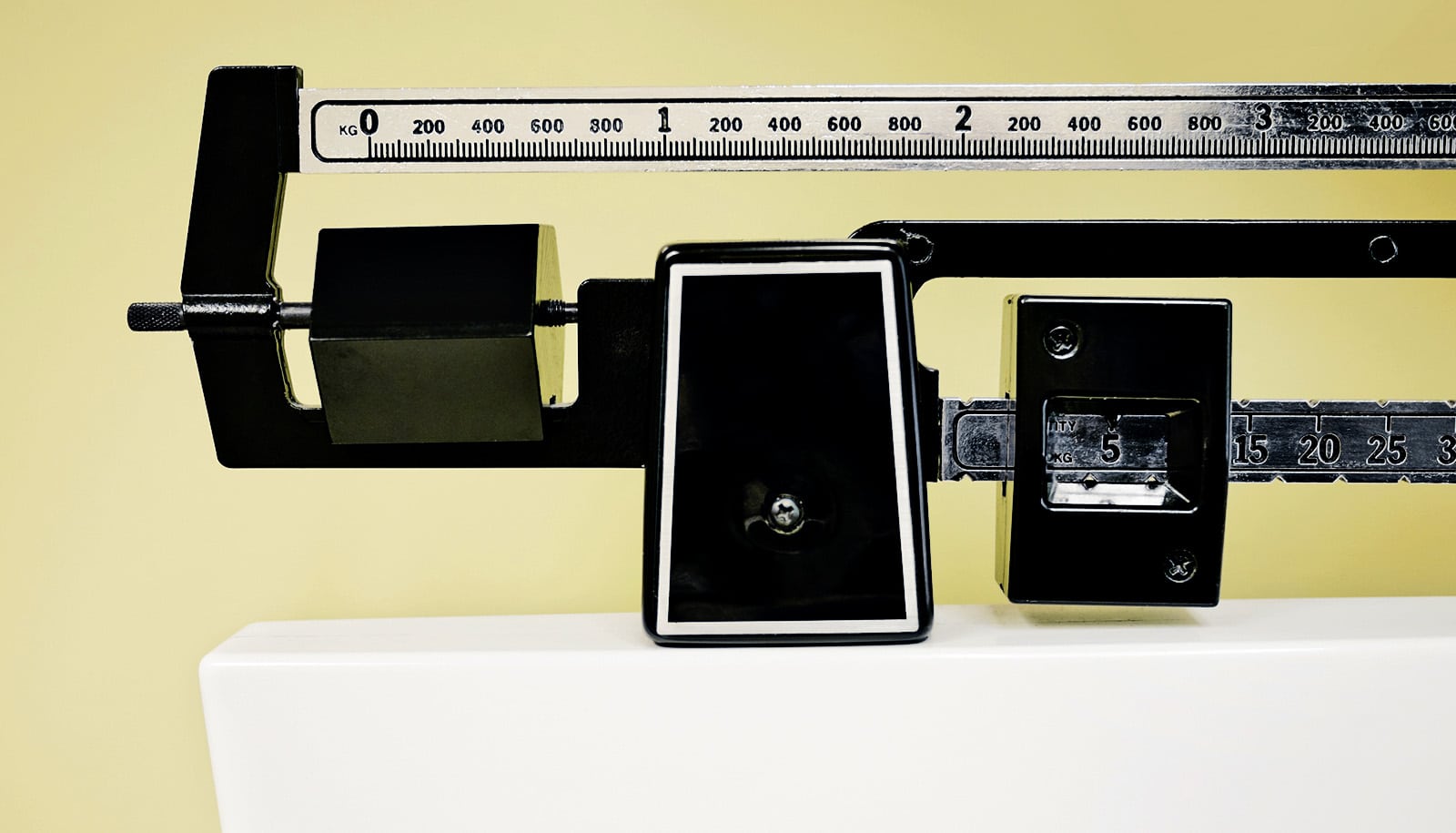As people learn that they can decline being weighed at the doctor’s office, a new study explores the reasons why a growing number are refusing the request.
More than half of the people studied felt being asked to step on the scale at the doctor’s office negatively affected their emotions, self-esteem, and mental health. Many also expressed concern their health care provider might discriminate against them if they knew their weight.
The findings pave the way for policy changes that might provide more awareness to patients about their rights and ability to protect their mental health.
“Research shows that most of the time being weighed during a visit to the doctor isn’t necessary. The first step is getting the message out there that you can refuse being weighed. Most people don’t know,” says Virginia Ramseyer Winter, an associate professor in the School of Social Work within the College of Health Sciences and director of the Center for Body Image Research and Policy at the University of Missouri.
“Learning the reasons why people refuse being weighed gives us more insight on the broader relationship between people and their health care providers. We can utilize these findings to inform health care from a policy-level.”
For the study, published in Body Image: An International Journal of Research, the researchers recruited 384 adult women to participate in a survey which included questions about their most recent health care visit. It was significant that researchers were able to recruit participants with diverse body sizes because the results of the study show that the negative impact of being asked to step on the scale wasn’t necessarily tied to any specific body type or size, Ramseyer Winter says.
Patients aren’t the only people who could benefit from education about weighing during health care visits, says Kate Trout, an assistant professor in the College of Health Sciences and a study collaborator.
“The implications of these results show that we really need to start training the health care workforce to bring light to this issue because it is urgent,” Trout says. “From our study, we know that over 30% of women are refusing to be weighed, and we also know that women will even avoid health care all together in an effort to refuse being weighed.
“We have to be more inclusive to ensure everyone gets the care they need, which could lead to improved health outcomes in the long term.”
One way to mitigate the impact of being weighed when it’s medically necessary is to wait until the end of the doctor’s visit to step on the scale once medical necessity is determined, Ramseyer Winter and Trout say. That way, other issues that might arise from the stress, such as increased blood pressure, can be avoided.
Additional coauthors of the study are from the University of Denver, Washburn University, the University of Connecticut, and the University of Missouri.
Source: University of Missouri



